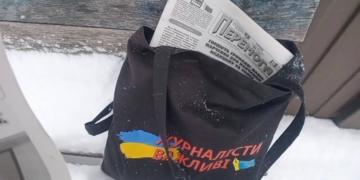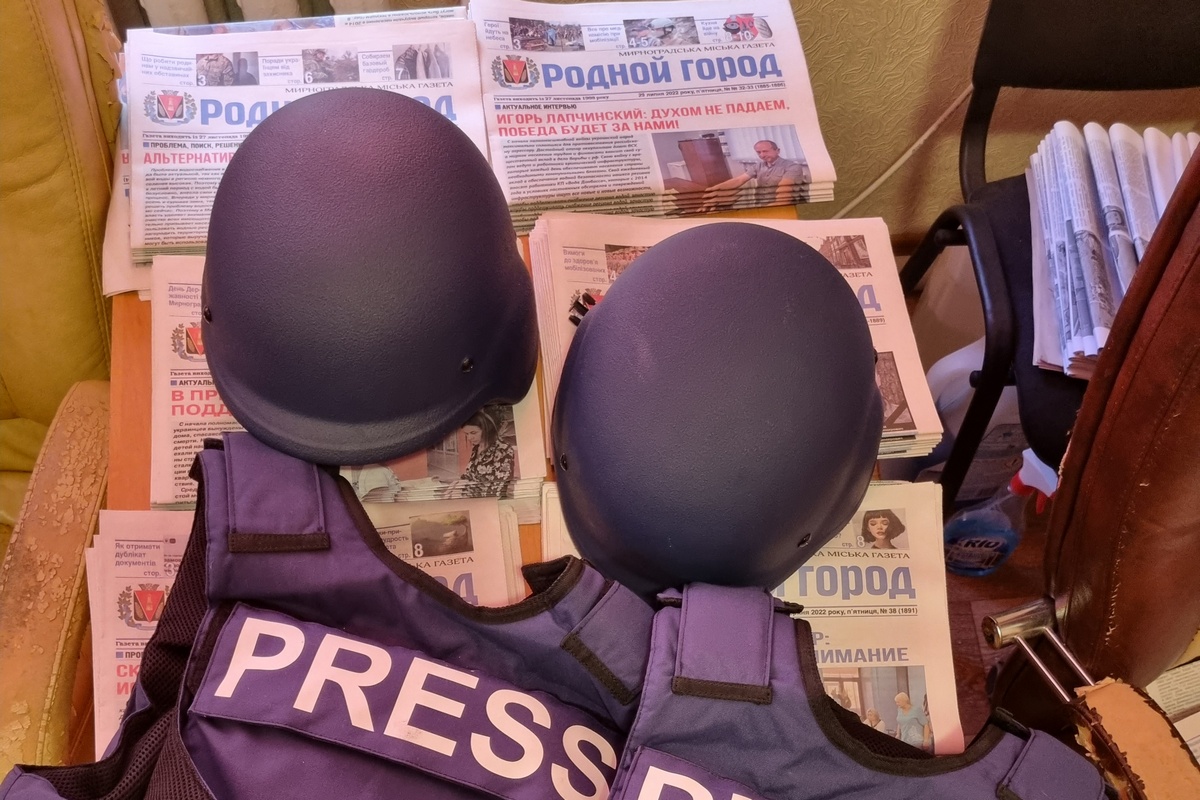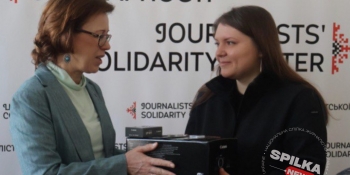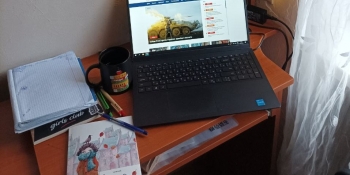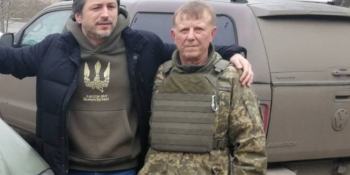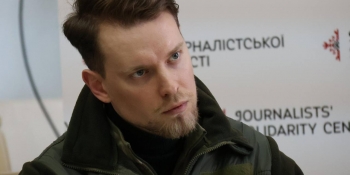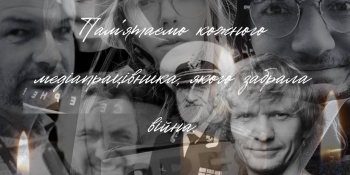Myrnohrad town newspaper Rodnoi Gorod [Hometown] is the only publication in the Donetsk Region that is published systematically, almost without interruptions. Readers did not receive their newspaper only two weeks after the start of full-scale Russian aggression and at the end of April and beginning of May 2022, when the newsroom staff left Myrnohrad at the request of the authorities. Work has been adjusted under new conditions, and since May 13, the newspaper has been published without interruption. The National Union of Journalists of Ukraine (NUJU) recently financially supported the publication.
“We conducted a subscription campaign for the first half of 2023,” says the editor-in-chief of Rodnoi Gorod Maksym Zabielia. “Considering that at least half of the population left our region, the results are not bad; out of 4,700 previous subscribers, we managed to keep over 3,000! Of course, such a circulation cannot be compared with the pre-war 6,000-6,500 one, but I still consider it an achievement. As long as we have subscribers, we will be working!
With time and the deepening of the economic crisis caused by the war, the newsroom has run out of certain financial reserves, and the prices of printing services increased. In addition, the military administration of Myrnohrad does not want to support the newspaper. So, Rodnoi Gorod is trying to survive by attracting grant aid.
“Unfortunately, potential donors mostly refuse because our town is too close to the war zone,” says the editor. “Grant projects are designed for six months or more, and the grantors respond that they are unsure if we can work all this time. Effective support was received only from the NUJU, which financed the printing of the issue dated March 3, 2023. The Union, on the contrary, believes that our proximity to the front increases our importance for Ukraine and Ukrainian journalism. On behalf of the team, I would like to thank, first of all, the leadership of the NUJU, its President Sergiy Tomilenko, and the donor organizations that cooperate with the Union and understand how important it is to support Ukrainian journalists, in particular, those who work close to the front-line territories in war conditions.”
Maksym Zabielia says that the publication’s work is organized so that it allows him to be constantly present in Myrnohrad and provide relative safety to the workforce.
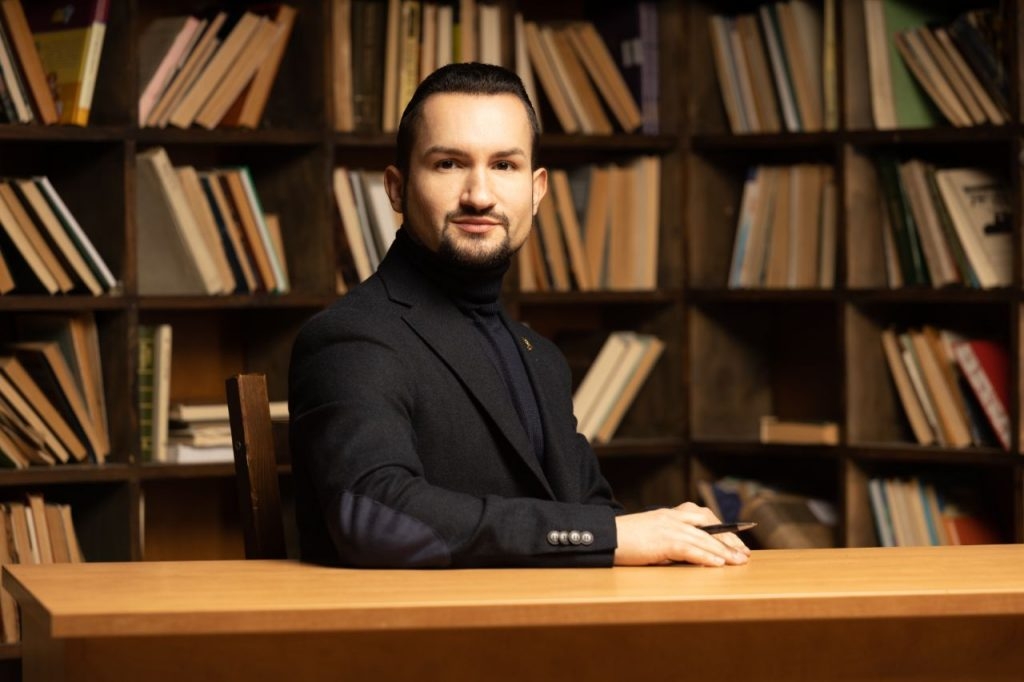
“All the time, part of the team remains in Myrnohrad, and part “outside its borders,” explains the editor. “My journalist colleague and I conduct a kind of shift rotation: she worked in Myrnohrad for ten days and went to Dnipro, and now I work in Myrnohrad. And so, we leave the town one by one. We are grateful to the Journalists’ Solidarity Center of the NUJU, which provided two protective kits for trips to the danger zone.”
Shelling of Myrnohrad is a common thing. But fortunately, many people have left the town, so the enemy often hits empty houses. Of course, there is property damage, but there are fewer victims this way.
“If I had stayed in Myrnohrad all the time, its condition would not have been so noticeable. And when you have the opportunity to leave and then come back, you see how your town is being destroyed every time,” says the editor. “Also, security measures are becoming stricter every time, and the population is more confused. Although, on the other hand, since 2014, we have already gotten used to shelling. This, of course, is bad. But we do not lose optimism, and, despite everything, we believe in the Victory!”
Support of publications on the front-line and de-occupied territories is among the main priorities of the NUJU in 2023.
“Thanks to the assistance of international benefactors, the Union managed to finance the publication of at least one issue of more than twenty newspapers in the zone close to the front or the Russian border,” noted NUJU’s President Sergiy Tomilenko. “We constantly repeat: journalists are important! They are important because the truth is essential without journalists, and mass media remains hidden from people! It should not be the case that the people, whom the occupiers deprived of a peaceful life, an everyday life, often – a profession, and the health and lives of loved ones, do not have the right to receive prompt, objective, truthful information. Journalists work in Ukraine precisely to preserve this right!
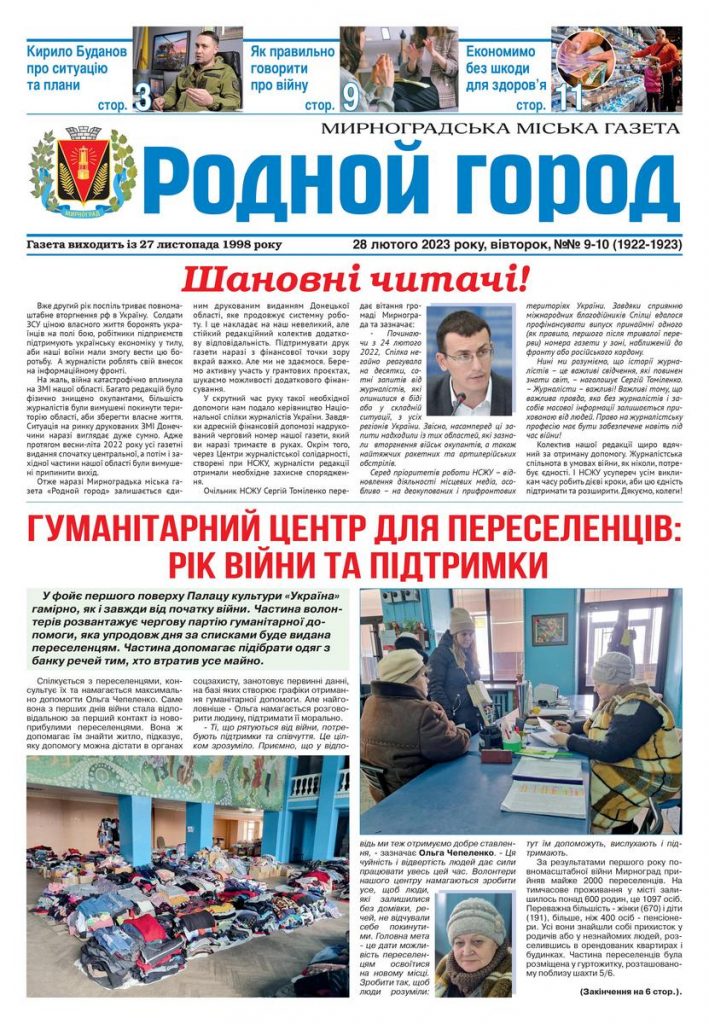
Maksym Stepanov, NUJU information service





